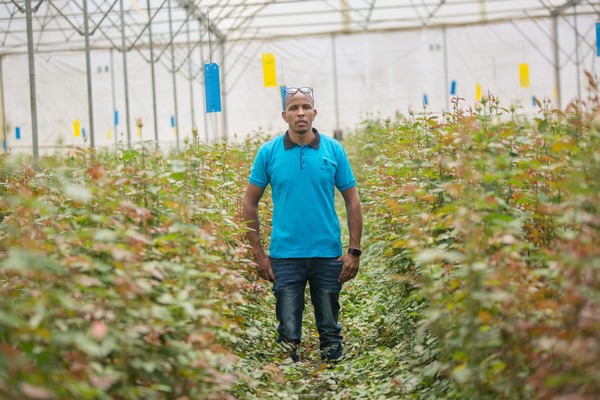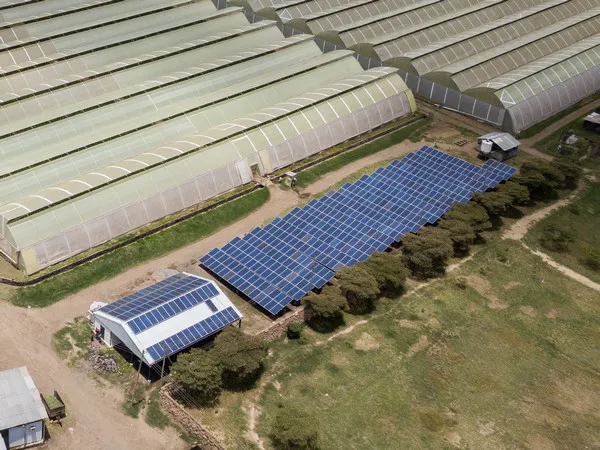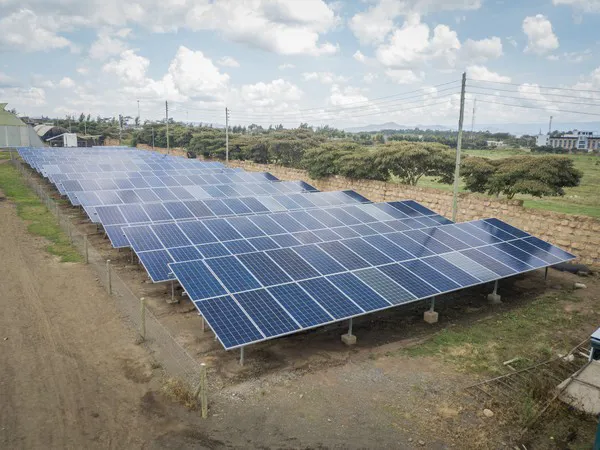“Managing our cost of power in an environmentally friendly manner is a huge component of our corporation,” says Patrick Mbugua, General Manager of Wildfire Flowers, Kenyan rose and hypericum farm. “We save about 25% of our power costs currently, which is a lot when looking at the type of crops we grow. And if some situations change we would love to expand our solar system and profit from it even more in the future.”
Patrick Mbugua
25% power (cost) reduction
After doing a study, Wildfire Flowers concluded that installing this solar system was the most optimal solution for them. “The system works in tandem with a grid, so that when there is not enough radiation we can get energy from there. The solar system provides us power during the day, while we are dependent on the grid at night. During the day, between 11AM and 3PM the sun is at its brightest, and during these hours we can fully run the farm on solar power. For other farms, where they only grow roses for example, a solar system can provide them with around 60-70% of their energy, but at Wildfire Flowers we also grow summer flowers which need to have light at night, when we rely on the grid for our power. Therefore, we save around 25% of our power costs, which is a great number for us, and to do so in an environmentally friendly manner is a big advantage.”
Challenges and future plans
While Wildfire Flowers is really content with the results, the start of the project was a bit of a challenge, says Mbugua. “Procuring the materials from overseas into Kenya was the most challenging part, as it took several months to arrive. As a result, there was a bit of a time gap between ordering the system and actually getting to install it. But once everything arrived, we were impressed by how quickly and smoothly the system was installed.” 
Mbugua shares that he would love to expand their solar system in the future, but certain things would have to change first. “It is really expensive for us to store any excess power and we do not want to waste any, so expanding the system will not be an option until there is a more affordable manner to store excess power. In addition, it is not allowed in Kenya to sell back excess production to power companies, yet there are already efforts in motion to change these regulations. If these aspects would improve in the future, we would love to expand and we encourage other farms to implement solar energy as well, as it is a sensible and clean way of obtaining your power.”
For more information:
Wildfire Flowers
Patrick Mbugua
[email protected]
www.wildfire-flowers.com
Sign up for our daily Newsletter and stay up to date with all the latest news!
Subscribe I am already a subscriber